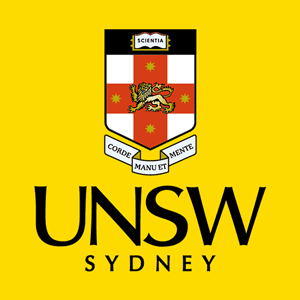Learn business finance, enhance existing skills, and sample a masters program, all online.

Interested in postgraduate finance education? It usually begins with a Graduate Certificate in Finance. This course is equivalent to the first stage of a masters degree and allows for either introductory or specialised study.
Completed subjects can be credited towards a future graduate diploma or masters. The flexible online course enables a balance of work with part-time study and is ideal for working professionals.
Course Overview
A Graduate Certificate in Finance is a versatile study option for those who either: (a) have a degree in finance or another discipline; or (b) lack a degree but have professional experience in business, banking, or finance.
The relatively short course essentially samples a finance master's program. You can gain an introduction to finance or acquire specialist skills.
The course also serves as a starting point for a finance degree. With just four subjects, it can be completed in eight months of part-time study. For further education, graduates can consider a graduate diploma (8 subjects) or a finance master's (12 subjects).
Despite its brevity, you'll achieve a substantial postgraduate university qualification. In the Australian Qualifications Framework, a graduate certificate is a Level 8 course, equal to a graduate diploma and surpassing a bachelor degree (Level 7).
Whether you are starting in finance or are a professional seeking to enhance your financial expertise, this course offers opportunities. Admission standards are generally more relaxed than for a master's, and there is flexibility to build skills in specific areas.
Why This Course Is Worth Doing
An online Graduate Certificate in Finance can be a smart career move and is often worth the investment. It prepares you for a range of financial roles, including lucrative positions like financial controller or fund manager. Finance managers are paid around $129,280 on average in Australia.
The qualification serves as a stepping stone in finance, requiring you to complete just four subjects. If you choose to advance further, these credits typically count towards a graduate diploma and master's degree.
The flexibility offered by online learning is a significant advantage. It allows you to balance your studies with existing work or personal commitments, making it an ideal choice for working professionals or individuals with a busy schedule.
In Australia, graduate certificates yield a high ROI due to their employer recognition, wide study area choices, time and cost efficiency, and equal standing to a graduate diploma and superiority to a bachelor's degree. Graduate certificates in business in particular are considered to have greater upside potential than downside risk.
Related: Is a Master of Finance Worth It?
Graduate Certificate in Applied Finance

Keen to enhance your financial skills for the job market? The Graduate Certificate in Applied Finance could be the ideal course for you. It's designed with a strong emphasis on industry relevance.
By doing this course, you'll gain knowledge, skills, and tools that finance professionals use every day. In addition, hands-on tasks ensure students gain experience in managing real-world scenarios. Recognised and valued by employers, this qualification opens up job opportunities.
UNSW Online
The 100% online Graduate Certificate in Applied Finance from UNSW is an introductory course that forms part of a larger master's program. You don't need a business degree to join. Students learn core concepts and principles to do with the financial management of organisations. You apply knowledge to real-world examples, helping you to appreciate how financial concepts can be used to shape business decisions. The 4-subject course can be completed in as little as 8 months of accelerated study, with students moving onto a new subject every 2 months. Topics include corporate financial management, investment strategies, and global practices.
Financial Technology Course

A FinTech course delves into the crossroads of monetary affairs and technology, exploring areas like big data, blockchain, and mobile computing. These factors are transforming the financial services sector, offering students insights into its evolving dynamics.
Through a Graduate Certificate in Financial Technology, you can cultivate specific skills demanded in the dynamic FinTech industry. Concentrating on the competencies required by professionals in this field, this four-subject program not only aids in developing focused expertise but also acts as a stepping stone for further learning.
UNSW Online
The Graduate Certificate in Financial Technology from UNSW is an excellent choice for working professionals interested in enhancing their FinTech capabilities. Acquire advanced skills in specified areas or lay a solid foundation for further studies. Within the course, you can select four subjects from a pool of ten available in the master's program, which encompass topics such as technical tools for FinTech, data management, technological disruption, and robo-advisory and portfolio optimisation. Delivered in seven-week blocks, you can complete the course in as little as eight months part-time. After finishing, you can progress to a graduate diploma or a master's degree in applied finance.
What You'll Study (Course Structure)

The four subjects you do are usually some combination of core subjects and elective units. At UNSW Online, every finance postgraduate student takes Corporate Finance, International Finance, and Investments. Elective choices include Derivatives, Equity Valuation, Ethics and Professional Standards, and Private Equity and Venture Capital.
You'll learn how modern investments work in this course. Students explore how to evaluate investment strategies, the risk-return relationship, and the changing landscape of investment management. You'll also survey different financial markets and review instruments to allocate funds and hedge against risk.
Specific topics include quantifying risk and returns, pricing risk, designing portfolios, valuing equities and fixed-income assets, and hedging using derivatives. The main goal is to prepare you for the challenges markets present.
Multinational firms, both with Australian and overseas origins, account for substantial employment and economic activity in Australia. The monetary functions in these corporations expand beyond those of local-only enterprises. In this course, students develop a detailed comprehension of global financial concepts. You'll also learn to apply theory through practical data analysis and scenario-based studies.
Data tasks and real-world examples are included in course materials, encompassing weekly activities and evaluations.
The program delves into international monetary policy, foreign exchange markets, and exchange rate factors. Students take on a transaction-level viewpoint to construct hedging strategies that account for fluctuations in exchange and interest rates. You'll also scrutinise decision-making processes and methods of funding and investment in global markets.
In this subject, you'll learn concepts and tools for solving the real-world financial problems that companies face. Students examine financing, valuing businesses, optimising the capital structure, and payout policies among other topics.
Job Opportunities

A finance graduate certificate can certainly help you get a job. This credential attests to your proficiency in the discipline, making it a sought-after qualification. It paves the way for numerous potential roles, from entry-level to specialist and high-ranking positions.
The ability to grasp and apply finance principles is essential to all organisations, making graduates valuable across industries. Key employers include accounting firms, banks, fintech companies, investment advisory firms, public service agencies, and wealth management firms.
Graduates have the potential to find roles as financial specialists or in positions where a sound understanding of the subject is paramount. The program can ready you for roles such as financial analyst, corporate finance manager, fintech manager, portfolio manager, and risk management specialist. It can also aid those in managerial and executive roles by enhancing their financial literacy, a crucial factor for strategic decision-making.
Finance is core business skill that makes you potentially valuable in any organisation. Firms need to make decisions around borrowing, lending, investing, remunerating employees, capital allocation, etc. Some of the main employers of graduates include:
- Accounting companies
- Banks and financial institutions
- Financial technology firms
- Investment and financial advisory firms
- Public service agencies
- Wealth management companies.
Graduates may work as financial specialists or use their skills as an important aspect of their job. Managers and executives often find value in having strong financial literacy. Here are examples of the career opportunities.
Advisory professional
Banker
Broker
Compliance manager
Corporate finance manager
Credit manager
Credit risk analyst
Economist
Finance dealer
Finance director
Finance manager
Financial analyst
Financial controller
Financier
Fintech manager
Fund manager
General Manager
Head of Finance
Hospital Administrator
Investment adviser
Mortgage broker
Office Manager
Portfolio manager
Practice Manager
Risk management specialist
Risk manager
Senior Payroll Officer
Stockbroker
Treasurer
Working capital specialist
Entry Requirements
Entry requirements vary by university. A relevant degree is generally a sufficient qualification. In some cases, any degree will suffice. Without a degree, you need to provide evidence of relevant professional experience. Here are examples of course admission requirements.
You need a bachelor’s degree (or equivalent qualification) in any discipline OR at least 3 years of work experience related to business, banking or finance.
Fully online courses are unsuitable for international students wishing to study in Australia on a student visa.
FEE-HELP loans are automatically available for eligible Australian students. Study now and pay back tuition fees gradually based on your annual taxable income.
At the time of publishing, the indicative fee for this course in 2023 is $18,600 for both domestic students and international students.
Applicants require a bachelor degree (any discipline) OR at least 5 years of work experience related to banking, finance or technology.
If your first language is not English, you'll need proof of English proficiency in order to receive a study offer. You may provide evidence that you meet one or more of the following entry criteria: English language tests and university English courses, Prior study in the medium of English, Other qualifications, or English waivers.
Articulation pathways exist to the Graduate Diploma and Masters program if you complete this course with a minimum WAM of 65.
The indicative fee for this course in 2023 is $18,600 for both domestic and international students.
FAQs
A Master of Applied Finance is a high-value degree that can pay for itself quickly by increasing your earning potential. A grad cert is a stepping stone to this qualification.
A great advantage of postgraduate studies is that you often get to decide how much study to do. Most postgrad students already have a university degree, so they have nothing to prove in terms of slogging it out to earn a degree.
By doing a four-subject grad cert in finance, you gain a university-level qualification in the field. That may be all you want and worth it by itself.
But you may want to go further, both for professional development and to gain a higher qualification. A Master of Applied Finance provides a tremendous skills and knowledge platform for people who want to specialise in business finances, financial management, and organisational leadership.
Hopefully, you'll know if you want to convert your grad cert into a master's degree by the time you finish the short course. Students who adapt well to online study often find it relatively easy to keep going. With good study habits in place, there's no reason why you can't build on the four subjects already completed and finish a 12-subject masters.
If your intention is to continue in the finance industry, unsurprisingly we'd recommend that you look at doing a grad cert. The reality is that an undergraduate degree in finance, while providing a foundation for a career in the sector, is not comprehensive training. You can consolidate on your previous studies and branch out into areas such as FinTech with a grad cert. And you have the option to continue on to complete a masters.
Beyond university education, self-learning and short courses are other options for professional development. Every career in the financial sector is different and you'll inevitably discover knowledge gaps as you progress.
If you're confident in your technical skills but are looking to move into management ranks, a Master of Business Administration (MBA) is a good option as well. You can usually start with a Graduate Certificate in Business Administration. The program will provide general management training to help you become a better manager, in part by improving your fluency in talking about management issues.



